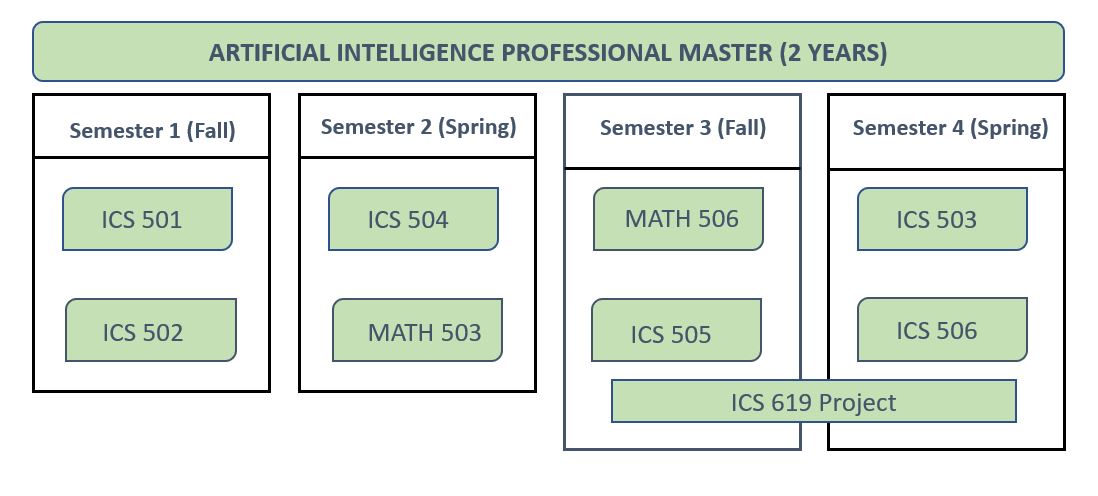The Saudi Data and Artificial Intelligence Authority was established by Royal decree in August 2019, to become the main government entity to facilitate and enable the adoption of AI in the Kingdom, particularly in relation to achieving the Vision 2030 goals related to building a future based on AI and innovation.
About the Program
In this Master of Artificial Intelligence and Machine Learning degree program, students learn to apply creative thinking, algorithmic design, and coding skills to build modern AI systems. The program provides breadth coverage of the different paradigms within the AI area. It is noteworthy though that among all AI paradigms, advancements made in ML paradigm and related disciplines will soon touch every piece of technology. Accordingly, the proposed program provides depth coverage of ML techniques, models, and applications. The program combines rigorous AI/ML curriculum with real-world market niches and experiences.
Program Objectives
The program Educational Objectives are to produce graduates who:
- PEO1. Are skillful enough professionals necessary to enhance the drive toward innovation and digital transformation via the application of different paradigms of artificial intelligence in Saudi Arabia.
- PEO2. Have the ability to develop more efficient solutions to real world problems via the application of Artificial Intelligence.
- PEO3. Identify new opportunities utilizing innovative Artificial Intelligence in general and Machine Learning in specific in improving the quality of life of the citizens.
- PEO4. Appreciate and enforce the ethics and impact on society when applying Artificial Intelligence.
- PEO5. Maintain currency in aspects and applications of Artificial Intelligence through self-learning or other professional development.
Why should you apply?
This program establishes the theoretical and practical foundations necessary to be at the forefront of progress in the next technological revolution, already manifested in Industry 4.0.
- The program is designed in line with the best practices of prominent universities offering similar programs.
- The program is unique in the sense that it provides a descent eye-opener coverage of the various AI paradigms and focused in-depth coverage of ML.
- The program aims at equipping its graduates with critical practical and technological skills along with solid mathematical and analytics skills to support design and development of AI/ML applications in various domains.
Program Requirement
- B.Sc. degree in Engineering, Science, or Information Systems
- Strong background in Programming and Data Structure (evidence should be provided, e.g., transcripts)
- Basics of Calculus and Linear algebra
- Basics of Discrete Mathematics, Probability and Statistics (evidence should be provided, e.g., transcripts)
Duration: 2 Years
Delivery Mode: In-Person
Degree Plan

Courses description
An introduction to a wide variety of robust optimization algorithms based on the theme of nature inspired optimization techniques. Computational implementation single-state methods such as Simulated Annealing and Tabu Search ; and population-based methods such as Genetic Algorithms, Particle Swarm, and Ant Colony. Theory including representations, landscapes, epistasis, code bloat, diversity, and problem structure is discussed. Applications to optimization, machine learning, software development, and others.
Note: Cannot be taken for credit with ICS-472.
All aspects of the data science pipeline using the software, toolboxes, and libraries like NumPy, SciPy, Pandas, Matplotlib, Seaborn: data acquisition, cleaning, handling missing data, EDA, visualization, feature engineering, modeling, model evaluation, bias-variance tradeoff, sampling, training, testing, experimenting with a classical model; ethics in data science.